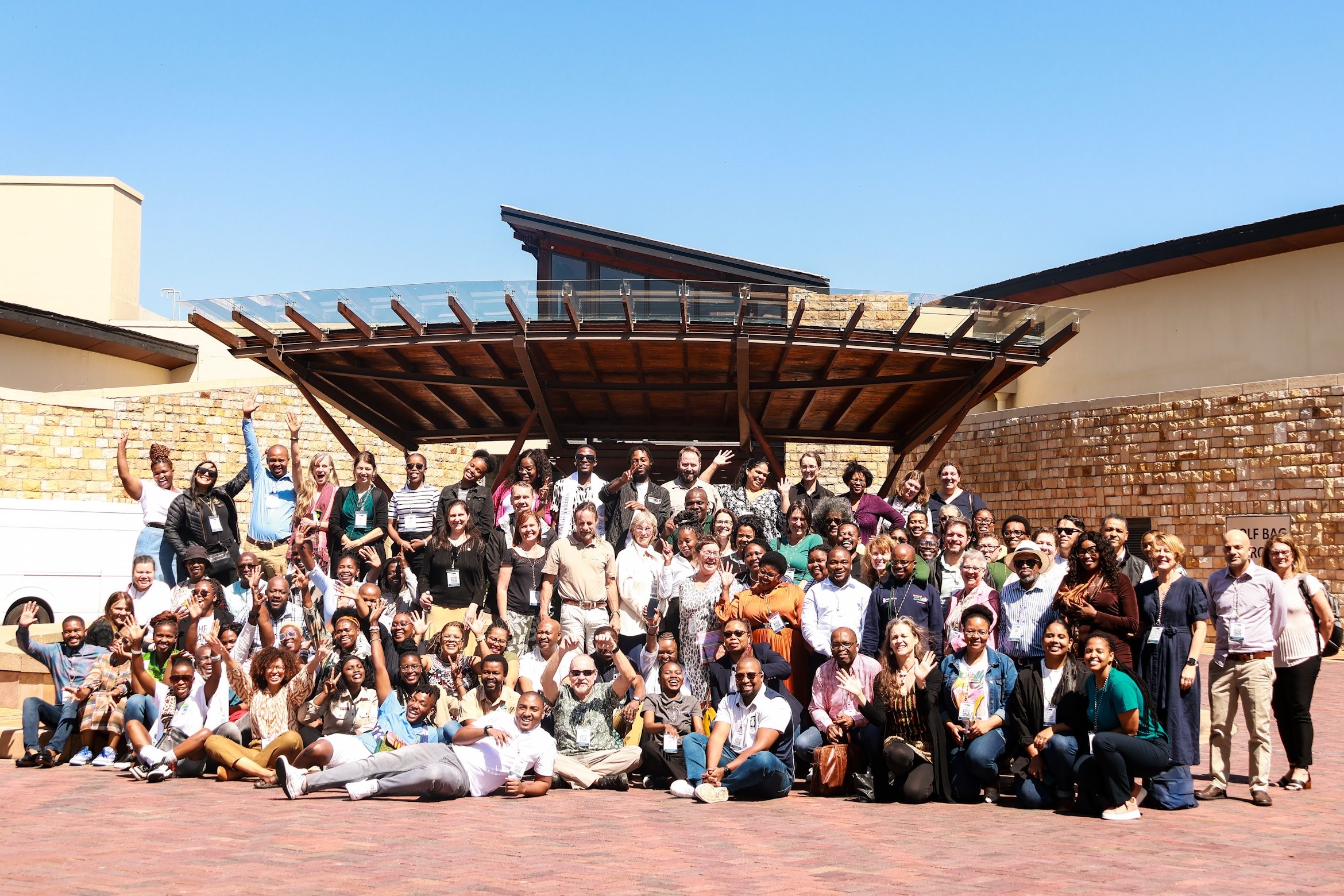CSIR supports nature-based solutions for water security at SANBI’s 4th Catchment-based Indaba
Population growth and rising demand are putting water demand from rivers in the Western Cape, such as the Berg River, under pressure. This Berg-Breede Catchment is one of seven important water source areas identified and mapped for the Western Cape. This is just one of the issues discussed by water experts at an indaba on water security in the Berg-Breede Catchment.

Population growth and rising demand are putting water demand from rivers in the Western Cape, such as the Berg River, under pressure. This Berg-Breede Catchment is one of seven important water source areas identified and mapped for the Western Cape. This is just one of the issues discussed by water experts at an indaba on water security in the Berg-Breede Catchment.
CSIR senior researchers Dr Ilse Kotzee and Dr Lindie Smith-Adao joined the South African National Biodiversity Institute (SANBI) and its partners for the 4th Catchment-based Indaba on Ecological Infrastructure for Water Security in the Berg-Breede Catchment. Held under the theme, ‘Preserve the source, secure the future, build resilience to a changing climate’, delegates convened in the heart of the Kogelberg Biosphere from 29 October to 1 November 2024 in Kleinmond.
The duo set the scene by delivering a keynote address titled, 'Shaping the future of our water resources: Past achievements, current research and future actions in strategic water source areas’. Smith-Adao highlighted current research while Kotzee presented CSIR work on a Water Research Commission (WRC) project that focuses on a proposed framework that local municipalities can use in developing their strategies, projects and monitoring programmes for Strategic Water Source Areas.
This year’s gathering attracted researchers, practitioners, landowners, government entities, conservation agencies and non-governmental organisations. The catchment community was afforded several opportunities to engage in the various initiatives and projects being undertaken – those that safeguard freshwater ecosystems in the Western Cape for current and future water security from sources such as the Berg-Breede catchment.
“Ensuring adequate water quality, quantity and access requires an integrated catchment management approach. Despite the good rains in the Western Cape, South Africa’s water future is still precarious,” says Kotzee. “Through purposeful partnerships and the expertise of the catchment community, we are committed in our efforts to ensure water security and sustainable catchments.”
The event forms part of the Living Catchments Project, a collaborative project implemented and led by SANBI in partnership with the WRC through funding from the Department of Science, Technology and Innovation and SANBI’s Ecological Infrastructure for Water Security Project.
The researchers gained invaluable insights on working in catchments with the network of partners. Naturally functioning ecosystems that generate or deliver valuable ecosystem services to people, such as healthy mountain catchments, rivers, wetlands and coastal dunes, are seen as ecological infrastructure that can assist society with adapting to climate change.
During field trips to various sites, the delegates could connect the presentation talks to the lived reality of the restoration, protection and rehabilitation work done in the catchments, wetlands and rivers. These water sources face several impacts and pressures from land-use practices and the presence of invasive alien fauna and flora that affect water quality and quantity.
The agenda also accommodated time for reflections and group discussions, resulting in emerging themes and subjects of interest from group discussions that centred on shared attributes and challenges of managing catchment solutions to catchment management and how efforts are contributing towards national and international water security commitments.

Source: South African National Biodiversity Institute

